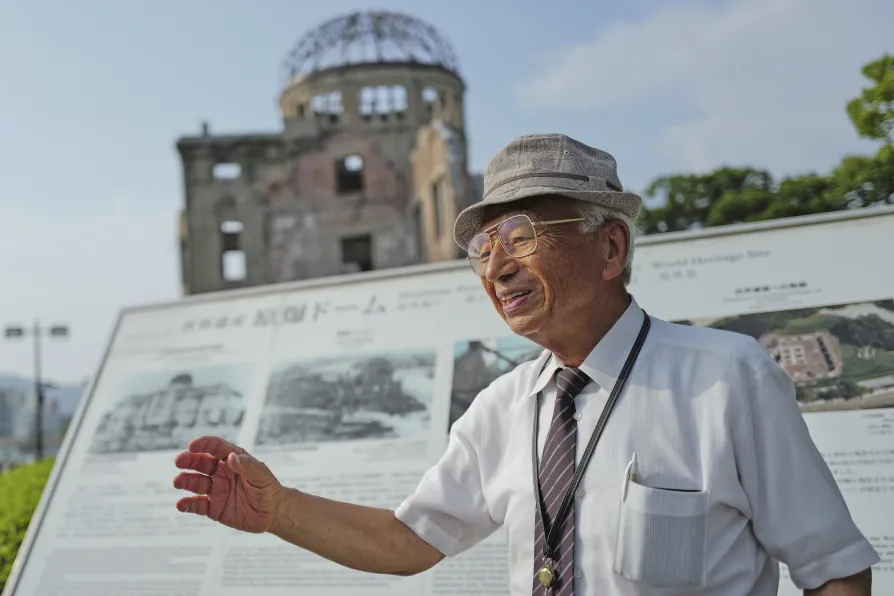Ageing survivors of the Hiroshima and Nagasaki atomic bombings are increasingly frustrated by growing nuclear threats by global leaders

 Kunihio Iida, atomic bomb survivor and a volunteer guide the iconic exhibition hall best known as the Atomic Bomb Dome speaks in English to foreign visitors on July 9, 2025, in Hiroshima, western Japan
Kunihio Iida, atomic bomb survivor and a volunteer guide the iconic exhibition hall best known as the Atomic Bomb Dome speaks in English to foreign visitors on July 9, 2025, in Hiroshima, western Japan
EIGHTY years after the atomic bombings of Hiroshima and Nagasaki, many of the remaining survivors are increasingly frustrated by global leaders’ growing acceptance of nuclear weapons and threats to use them.
The United States’ attacks on Hiroshima on August 6 1945 and three days later on Nagasaki left more than 200,000 people dead by the end of that year. Others survived but with radiation sickness.
About 100,000 survivors are still alive. Many hid their experiences to protect themselves and their families from discrimination. Others couldn’t talk about what had happened because of the trauma they suffered.
Some of the ageing survivors have begun to speak out late in their lives, hoping to encourage others to push for the end of nuclear weapons.
Despite numerous health problems, Kunihiko Iida, 83, has devoted his retirement years to telling his story as a way to push for nuclear disarmament.
He volunteers as a guide at Hiroshima’s Peace Memorial Park, seeking to raise awareness among visitors to Japan because he feels they lack a good understanding of the bombings.
When the US dropped a uranium bomb on Hiroshima, Mr Iida, then aged three, was about half a mile away from the hypocentre, at a house where his mother grew up.
He remembers the intensity of the blast. It was as if he was thrown out of a building. He found himself alone under debris, bleeding from shards of broken glass all over his body.
“Mummy, help!” he tried to scream, but his voice didn’t come out. Eventually, he was rescued by his grandfather.
Within a month, his 25-year-old mother and four-year-old sister died after developing nosebleeds, skin problems and fatigue. Mr Iida had similar radiation effects throughout his time primary school, though he gradually regained his health.
“The only path to peace is nuclear weapons’ abolishment. There is no other way,” Mr Iida said.
Fumiko Doi, 86, would not have survived the atomic bombing of Nagasaki if a train she was on had run on time. It was scheduled to arrive at Urakami station at about 11am, just when the bomb was dropped above a nearby cathedral.
Thanks to the delay, the train was three miles away. Through the windows, Ms Doi, who was six years old, saw the flash. She covered her eyes and bent over as shards of broken windows rained down. Nearby passengers covered her for protection.
Ms Doi travels from her home in Fukuoka to join anti-war rallies and speaks out against nuclear weapons.
“Some people have forgotten about the atomic bombings… That’s sad,” she said, noting that some countries still possess and develop nuclear weapons more powerful than those used 80 years ago.
“If one hits Japan, we will be destroyed. If more are used around the world, that’s the end of the Earth,” she said. ”That’s why I grab every chance to speak out.”

Today Coventry’s Hiroshima Day Remembrance marks 80 years since the atomic bomb was dropped in 1945. Statement from Coventry Lord Mayor’s Committee of Peace and Reconciliation

JEREMY CORBYN reports from Hiroshima where he represented CND at the 80th anniversary of the bombing of the city by the US











